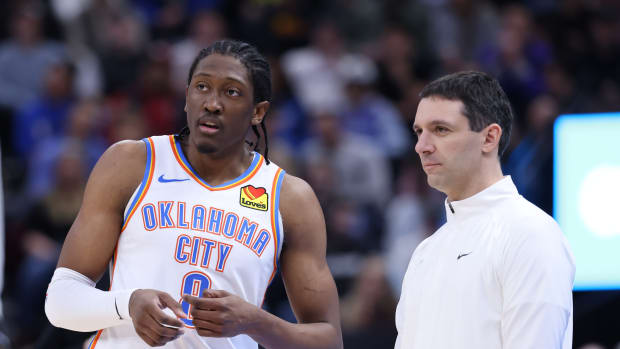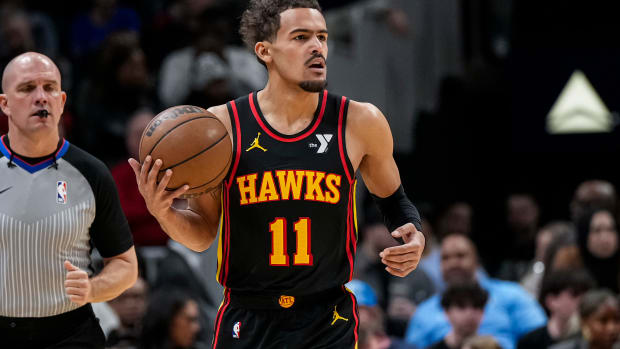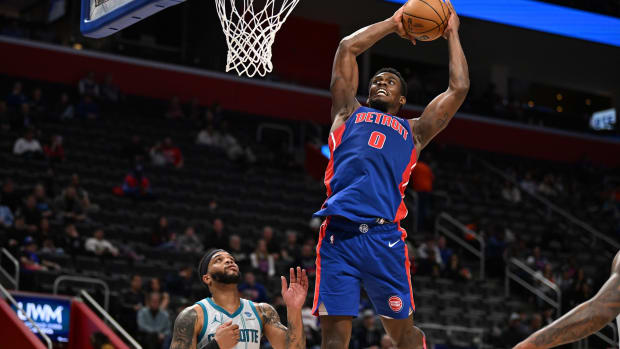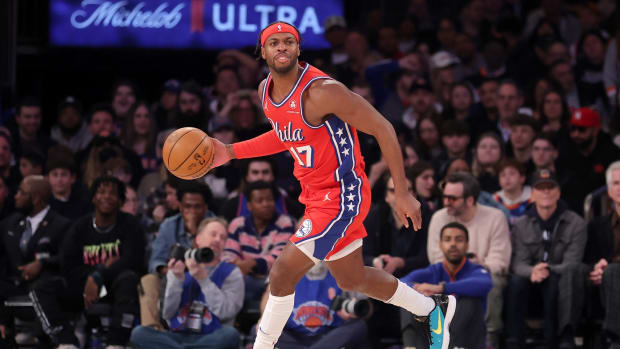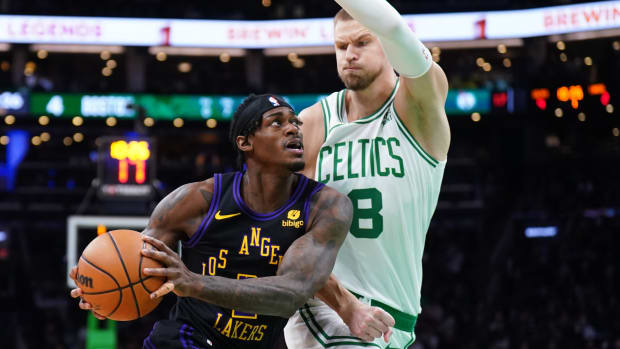Breaking Down the New NBA Tampering and Compliance Rules
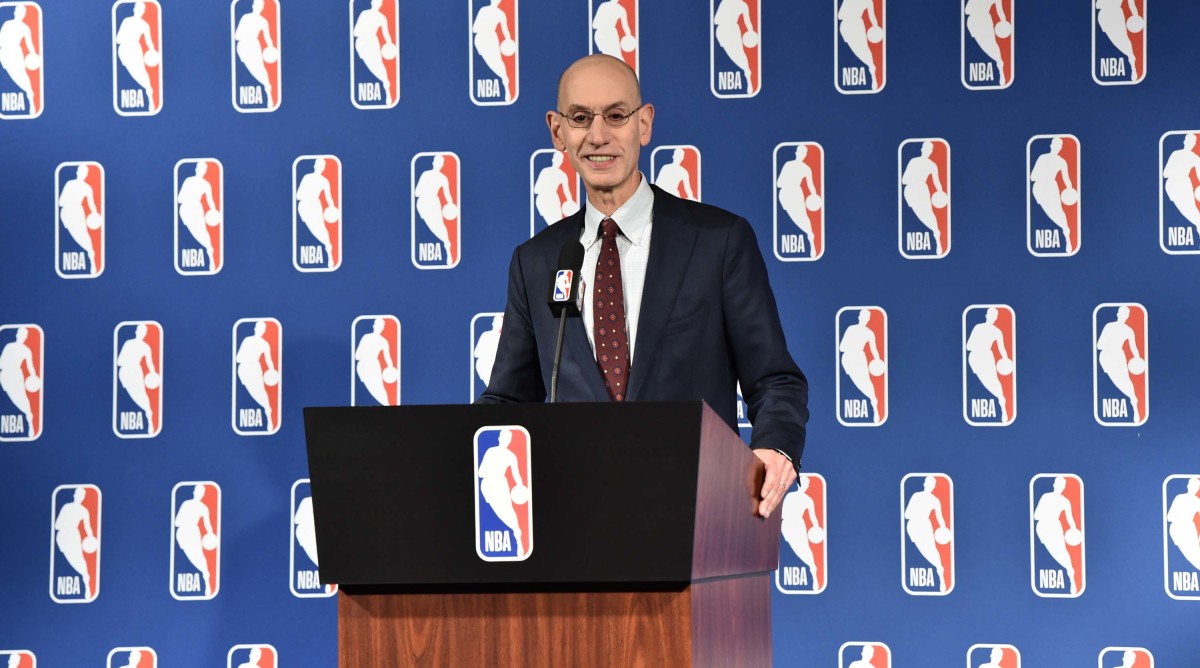
For decades, the NBA has explicitly prohibited tampering. Articles 35 and 35A of the league constitution leave no doubt that an owner, general manager, coach, scout or player can’t try to persuade a person employed by another team to join the tampering team.
The potential penalties for tampering have also been consequential. An offending team can have draft picks stripped away and transferred to a victimized team. Free agent signings can be voided. A team official deemed responsible can be fined up to $5 million. A player who tampers can be suspended for as many games as the commissioner deems appropriate.
These are hardly light sanctions—if only they were imposed.
Therein lies the problem. Actual punishments for tampering have been decidedly modest. The most impactful penalty (of sorts) took place in 1995. The Miami Heat were accused of tampering with the New York Knicks by recruiting Pat Riley while he was still under contract to the Knicks. The Heat and Knicks resolved the matter before David Stern, the NBA commissioner at the time, took any action. The Heat sent a first-round pick and $1 million to the Knicks in exchange for Riley, who would go on to coach the Heat from 1995 to 2008—a period highlighted by the Heat winning an NBA title in 2006.
The largest NBA sanction for tampering occurred in 2017, when the NBA fined the Los Angeles Lakers $500,000. The fine reflected unauthorized communications between Lakers general manager Rob Pelinka and representatives for Paul George while George was under contract to the Indiana Pacers.
If a core goal of punishment is to deter reoccurrence of the transgression, the $500,000 fine didn’t seem to work. A year later, the Lakers was once fined for tampering, this time for $50,000. It occurred in the aftermath of then-team president Magic Johnson effusively comparing Milwaukee Bucks star Giannis Antetokounmpo to himself when Johnson was an NBA superstar in the 1980s and 1990s.
Maybe it’s not surprising a $500,000 fine to a franchise reportedly worth $3.7 billion didn’t lead the Lakers to learning a lesson. While $500,000 is a ton of money, its less sizable in the context of an NBA franchise.
The Lakers’ fines also didn’t scare away other franchises from tampering. As shown by the rampant tampering that occurred prior to the start of NBA free agency on June 30, many teams have blatantly disregarded their legal obligation to refrain from tampering. This trend is likely exacerbated by a domino effect: the more teams that tamper, the more likely non-tampering teams will join them. They see their rivals gain by breaking the rules. So, to keep pace, non-tampering teams feel pressured to also break the rules. They are like rule-abiding students who watch their less ethical classmates get away with cheating: they need to cheat too or they’ll fall behind the competition.
Tampering is also problematic because it undermines the league’s commitment to fair play. Each team is supposed to have a legitimate opportunity—not a guarantee, but an opportunity—to succeed. The NBA’s popularity stems from the credibility of games as genuine contests. The league markets itself to consumers as such. A hallmark of bonafide competition is that teams play by rules they’ve agreed to follow; if teams cheat on those rules, the league itself is undermined.
Tampering’s evil twin, salary cap circumvention, is even worse. Salary cap circumvention refers to teams illicitly compensating players or their representatives in ways outside of a player’s employment contract. Article XIII of the collective bargaining agreement generally forbids this practice. Salary cap circumvention is especially detrimental to competition since it consists of money or other impermissible benefits changing hands (tampering, in contrast, tends to consist of forbidden communications). In July, there were unproven claims that Kawhi Leonard’s uncle and advisor, Dennis Robertson, may have demanded unauthorized benefits from teams that sought to sign Leonard.
On Friday, the NBA’s board of governors approved measures designed to increase the costs of tampering and enhance the league’s capacity to monitor and detect both tampering and salary cap circumvention.
To that end, the following changes have reportedly been made:
Higher Fines for Tampering: The maximum fine for a team or a team executive engaging in tampering doubles from $5 million to $10 million. The greater the penalty, the greater the deterrence. Deterrence is more likely to be effective if a hefty fine is assigned to an executive individual rather than (or in addition to) the team itself.
Higher Fines for Unauthorized Agreements: A team that enters into an unauthorized agreement with a player can be fined up to $6 million. This scenario would include “side deals” like the ones Joe Smith negotiated with the Minnesota Timberwolves back in the late 90s and early 2000s. The Timberwolves were punished in multiple ways, including being stripped of five first-round picks. These new fines could also apply to agreements that are reached by teams and players prior to the start of free agency; such agreements are often reported by media on Twitter.
Record Retention: Team executives must retain all communications with players and their representatives for one year. This record retention policy prevents a team from convincingly claiming that it no longer possesses records of communications. It also discourages “spoliation of evidence,” which refers to the illegal practice of altering or destroying records to avoid their disclosure in a potential legal matter. A failure by a team to preserve a record can now more readily for the basis of a league punishment. Formalized record retention procedures should place the NBA in an enhanced position to investigate and obtain relevant evidence.
Random Audits: Although the details of the audits remain unclarified, the NBA and any firms it hires will be able to audit up to five randomly selected teams each year. Among other things, an audit will grant the NBA access to a team’s electronic communications. The NBA already has the ability to compel a team to turn over records and electronic devices as part of a league investigation and the league has used that power on occasion when there is cause. The league is now giving notice to teams that they will make such demands without cause—hence the word “random.” This measure will improve the league’s ability to ensure that teams comply with NBA rules and not cheat the system. The threat of an audit in any context has the effect of discouraging wrongful conduct.
Certification: Every year, top team officials will be required to certify, in writing, that they did not engage in tampering or engage in impermissible communications with free agents or their representatives and that the contracts they signed satisfy all applicable league requirements. Certification might seem like an inconsequential measure and a ministerial function, but it’s the kind of bright-line measure that, if violated, the NBA can utilize to justify a meaningful punishment. A team official knowingly lying to the commissioner, in writing, would be a major transgression. It would warrant a significant suspension.
Mandatory Reporting: An obligation that teams report, with 24 hours, any demand by a player’s representative for impermissible benefits. A rule that mandates reporting ought to deter agents from seeking impermissible benefits: teams would need to report the request to the league. If a team fails to do so, it would be subject to sanctions.
In short, the NBA is making it more likely that a team that tampers or circumvents the salary cap will leave a paper trail and digital trail behind. Such a trail would provide the NBA more reliable, and possibly conclusive evidence, of wrongdoing.
The logic of the new rules
The new rules’ emphasis on evidence and access isn’t surprising given that the league is led by skilled attorneys, including commissioner Adam Silver and general counsel and chief compliance officer Rick Buchanan. They know that compliance and transparency measures are used in other industries. Banking institutions and financial services industries routinely rely on detailed policies to ensure compliance with applicable state and federal laws. Compliance is part of the global corporate culture and generally recognized as essential by those in it.
The NBA is a little different than many types of banking and financial institutions in that it is a league overseeing individually owned franchises that must collaborate and compete in unique ways. These franchises enjoy some degree of autonomy in how they are operated. For instance, teams retain their own legal counsel and develop human resources policies to address workplace misconduct.
But, like banking and financial institutions, teams operate in a very public space. They rely on the trust of consumers. The NBA has also cultivated new opportunities to engage the public and specifically the gaming community in the wake of certain states’ adopting legalized sports betting. Thirteen states—and counting—have legalized sports betting in light of the U.S. Supreme Court’s 2018 ruling in Murphy v. NCAA. The ruling effectively allows states to decide whether or not to offer sports betting. To be most successful, the NBA needs the public to feel confident that its operations are credible and that team executives are above board actors.
The NBA also clearly has discretion in this space. If an executive of an NBA team believes that league access to electronic communications would amount to unreasonable search and seizure under the Fourth Amendment to the U.S. Constitution, he or she should be advised that the NBA is a private entity and thus isn’t subject to constitutional requirements. Also, by signing an employment contract with an NBA franchise, an executive agrees to follow the rules of the franchise, which itself is contractually obligated to follow the rules of the NBA.
The rules also serve to communicate a point. The league is implicitly giving notice to teams that Silver is poised to dramatically increase the degree of penalty imposed on offending teams and their officials. Don’t be surprised if the next time a team is caught tampering the penalty is completely unlike any tampering penalties to date. It could include stripping away draft picks and suspending and/or substantially fining team executives. Silver will likely use that moment to send a message that he means business.
Challenges for the NBA in cracking down on tampering and salary cap circumvention
The new rules will, of course, not be perfect. For instance, there are privacy concerns with league access to a team executive’s emails, texts and, potentially, social media messages. Silver acknowledged that point in a press conference on Friday. “None of us,” Sliver observed, “want people looking into their personal communications.”
By possessing team communications and embracing a custodial role over them, the NBA is also a potential target of civil complaints or subpoenas should litigation involving a team and an employee or business partner surface (though, in reality, the league is already a target—if someone sues a team, they often sue the league as well).
There is also the risk of hackers obtaining access to confidential team information in the league’s possession. Although the NBA no doubt undertakes every effort to safeguard information, even the most data secure companies have been hacked. The more digital information that the league possesses, the greater the potential ramifications of a hack.
Meanwhile, team officials might rely on communication channels that escape the purview of NBA audits. In his The Crossover story on Friday, Chris Mannix heard from a longtime NBA executive who surmised that executives and agents can simply use encrypted apps to avoid NBA detection.
Work arounds of rules are always bound to happen, but they also carry risk. If a team executive is found to have acted in bad faith as the NBA prioritizes efforts to curb tampering, expect that executive to fell the wrath of Silver.
Michael McCann is SI’s Legal Analyst. He is also an attorney and Director of the Sports and Entertainment Law Institute at the University of New Hampshire Franklin Pierce School of Law































